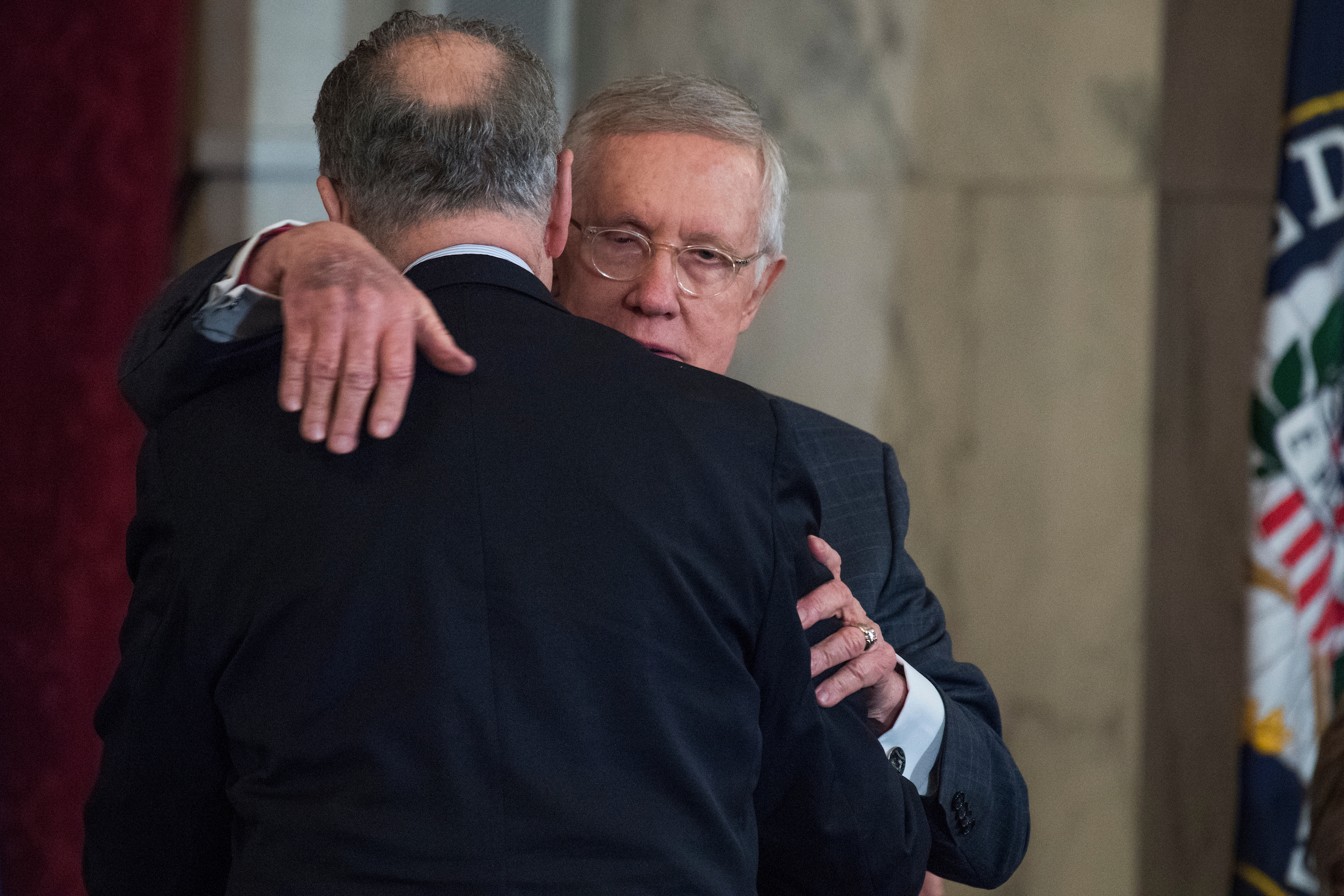Nevada Is a ‘Blue State’ Thanks to Harry Reid, Democrats Say
Former Senate majority leader’s political machine fully functioning

Former Senate Majority Leader Harry Reid may be retired, but he is not gone from politics, especially in Nevada, where the Democratic operation he built has turned the state blue.
With the help of the state party infrastructure Reid developed, Democrats in the midterm elections on Nov. 6 defeated GOP Sen. Dean Heller, took back the governor’s mansion, and swept new candidates into the statehouse.
“These things can change, but right now Nevada is a blue state,” Mark Hutchison, Nevada’s lame-duck Republican lieutenant governor, told The Associated Press. “There’s no doubt that the Democratic Party has done a very good job in Nevada of getting out the vote and creating an infrastructure that is formidable.”
Reid, 78, retired last year after 30 years in the Senate. But he is still the most influential person in Nevada politics, hand-selecting Rep. Jacky Rosen to run against Heller, Steve Sisolak to run for governor, and Susie Lee to replace Rosen.
All three won their races handily.
“He is probably the best political strategist that I’ve ever met,” Rep. Ruben Kihuentold the Las Vegas Review-Journal of Reid.
Kihuen, a freshman who credits Reid for his jump into national politics, did not run for re-election this year and was chastised by the House Ethics Committee recently for sexually harassing female employees and colleagues.
“[Reid] was the architect of what is today the Nevada Democratic Party,” Kihuen said.
Reid leaned into rebuilding his home state’s party ahead of his re-election campaign in 2004 by forging a coalition of environmental and pro-immigration groups and working with bosses in heavily unionized Las Vegas to turn out votes.
Reid leveraged his national donor connections to flood the state party and its coalition of outside organizations with cash to aid in turning out Democrats.
Nevada has some of the highest rates of unionized labor in the country because its economy is so heavily centered on the entertainment and service industries.
The Culinary Union, for instance, has 57,000 casino workers among its ranks and works closely with the Democratic Party to register its members to vote on a rolling basis instead of just the months leading up to an election.
“This is what Democrats need to be doing everywhere. This is the long game,” Rebecca Katz, a former aide for Reid, told the AP.
Sen.-elect Jacky Rosen defeated Heller by 5 percent in the 2018 midterms, outpacing Hillary Clinton’s victory over President Donald Trump in the state by 3 percentage points.
Democrats held onto all three of their previously controlled seats in the House.
Reid stayed home from the Democrats’ watch party at Caesar’s Palace in Las Vegas, but he was “very happy and proud,” Rebecca Lambe, a former aide, told the AP.
Kihuen thinks that Reid’s retirement from the Senate in 2017 is by no means a signal that he will fade from Nevada politics over the next several cycles.
“Just knowing Senator Reid, he will be involved with the party and politics as long as he’s alive,” Kihuen told the Review-Journal. “I firmly believe he has been able to build something that will last even after he’s no longer with us.”
Watch: Pelosi Talks Midterm ‘Wave,’ Says She Has Votes for Speakership





